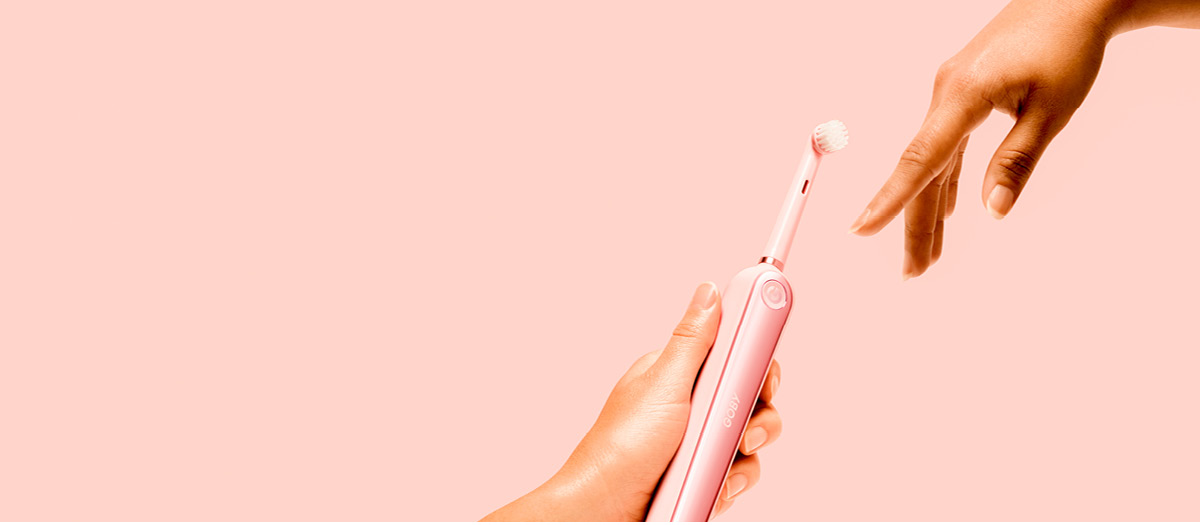Cavities: the word strikes fear in all who hear it. Put simply, when your teeth are frequently exposed to acid, sugars, starches, and bacteria, they can become permanently damaged with cavities. These tiny holes could also be the result of improper oral hygiene, and they can only be treated by your dentist. Left untreated, the holes will grow bigger and begin decaying deeper layers of your teeth, causing more problems, like a toothache, infection, and tooth loss.The best way to avoid having to go through the pain associated with cavities—and the uncomfortable root canals, fillings, crowns, and extractions that come along with them—is to prevent them. That’s why we’ve compiled a four easy tips that you can follow in your daily life to keep your teeth cavity-free.1. Brush more often than twice a dayBrushing your teeth with fluoride toothpaste twice a day is a good place to start, but experts also recommend brushing after every meal, particularly when you have indulged in something starchy or sugary.Sweets increase your risk of plaque buildup, and plaque loves a carb-rich environment. If you snack throughout the day or you know that you’re exposing your teeth to a lot of starches and sugars, consider packing a travel toothbrush so you can brush on the go and at work.Not keen on the idea of carrying a toothbrush and toothpaste everywhere you go? Then at least rinse your mouth thoroughly with water after eating. Other options include rinsing with mouthwash or chewing sugar-free gum. So simple, right?2. Give your toothbrush an upgradeYour toothbrush is an important tool in your arsenal to keep your teeth healthy and clean, so don’t skimp and buy a dollar-store option. Choose one that has a diamond-shaped head and triple-action bristles. A higher-quality toothbrush will do a much better job when it comes to cleaning all of the nooks and crannies that can be difficult to reach and can harbor bacteria.An electric toothbrush is a great choice for those who want to rest assured that they’re brushing correctly. These rechargeable toothbrushes often come with helpful features, such as timers to let you know when you’ve brushed enough, as well as various brush heads and tongue cleaners to get the job done right. Hello, clean teeth and fresh breath!3. Your diet, your dental healthWhat you eat, and how often you eat, will affect more than just your waistline. If you find yourself frequently snacking throughout the day, you could be making yourself more prone to cavities as a result of the acids left behind.You can keep yourself energized throughout the day without compromising your oral health. For example, you could reduce your risk of cavities by ditching sugary drinks and hydrating with water instead. And rather than having candy, chips, and other unhealthy snacks, you can fuel your body with veggies and fruits that have a fibrous texture and can help keep your teeth clean.4. See your dentist RegularlyAccording to the Centers for Disease Control and Prevention (CDC), more than 20% of adults in the U.S. have cavities that have been left untreated. These could worsen over time, but seeing your dentist regularly could catch cavities in their early stages when they require less intense treatment.Make use of your dental insurance by seeing your dentist at least once a year and having your teeth cleaned professionally. Your dentist can take x-rays, thoroughly examine your mouth, and provide options like fluoride treatments, dental sealants, and antibacterial treatments designed to fight cavities. Plus, you can receive valuable advice about home care, including how to brush and floss properly.With the right dental plan, you won’t have to worry about waiting periods, especially when you’re dealing with cavities when time is of the essence. But what you do in your everyday life also has a big impact on how healthy your teeth will be, so take care of your mouth with a consistent oral hygiene routine and a healthy diet.Sources:https://www.mayoclinic.org/diseases-conditions/cavities/symptoms-causes/syc-20352892https://www.nidcr.nih.gov/health-info/tooth-decayhttps://www.colgate.com/en-us/oral-health/cavities/what-causes-cavitites-formation-and-preventionhttps://www.cdc.gov/nchs/fastats/dental.htm?_ga=1.236214209.1710427178.1456827074

